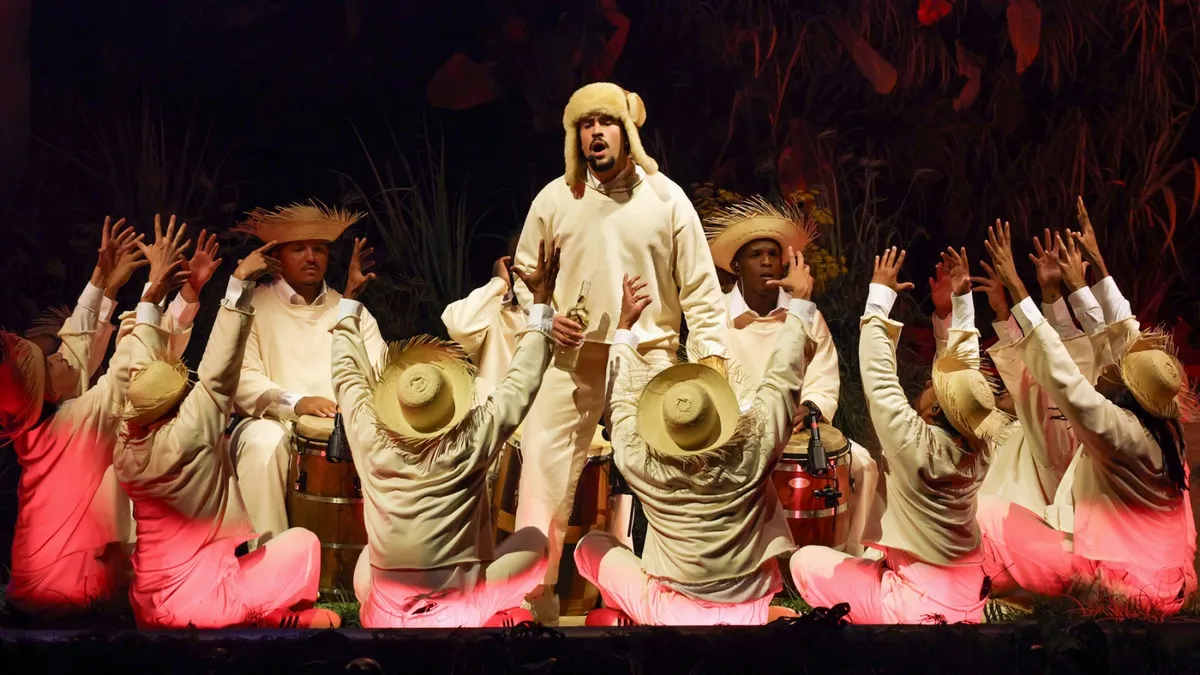
Bad Bunny, the Latin superstar, has been making waves in the music industry since his debut in 2016. Known for breaking records and challenging industry norms, he remains steadfast in his commitment to his Puerto Rican roots and the Spanish language. With the announcement that he will headline the Super Bowl LX halftime show, Bad Bunny is poised to become the first artist to deliver a fully non-English performance during the coveted 15-minute set.
While Bad Bunny isn’t the first Latin or Spanish-speaking artist to take the Super Bowl halftime stage as a headliner, he joins a prestigious group of trailblazers, including Gloria Estefan, Shakira, and Jennifer Lopez. In 2020, he even shared the stage with Shakira, performing a segment of his collaboration with Cardi B, “I Like It.” However, what sets Bad Bunny apart is his unwavering dedication to performing primarily in Spanish, which has, unfortunately, drawn criticism from some right-wing commentators. Unless he decides to perform cover songs, his set will likely remain entirely in his native language.
Following the announcement of his Super Bowl performance, Bad Bunny took to social media to express his excitement. In a statement delivered in Spanish, he said, “Ve y dile a tu abuela, que seremos el HALFTIME SHOW DEL SUPER BOWL,” which translates to, “Go and tell your grandma that we’re going to be the Super Bowl halftime show performer.” This statement highlights not only his pride in his heritage but also his desire to connect with fans across generations.
Bad Bunny's decision to perform primarily in Spanish during the Super Bowl is significant for a variety of reasons. His performance will bring the Spanish language and the Latin diaspora into the spotlight during one of the most-watched events in the United States. Despite opposition from some quarters claiming that speaking Spanish is “un-American,” statistics from the U.S. Census Bureau tell a different story. In 2019, Spanish was the most spoken language in the U.S. after English, and by 2025, an estimated 22 percent of individuals aged five and older will report speaking a language other than English at home, with around 61 percent of those speaking Spanish.
Bad Bunny's historic performance at the Super Bowl comes at a time when the Latin community in the U.S. faces significant challenges, including heightened anti-immigrant sentiment and mass deportations. By honoring this community during such a high-profile event, Bad Bunny is making a powerful statement. He has previously expressed concerns about the safety of his fans, choosing not to tour his Debí Tirar Más Fotos album in the U.S. due to fears that Immigration and Customs Enforcement (ICE) might target attendees. “There was the issue of — like, fucking ICE could be outside my concert,” he shared with i-D, highlighting his awareness and sensitivity to the current climate.
As anticipation builds for the Super Bowl LX halftime show, Bad Bunny's performance is expected to be a celebration of culture and language. His commitment to performing in Spanish not only showcases his artistry but also reflects a broader cultural movement that embraces diversity and inclusion. With his growing popularity and the increasing visibility of the Latin community in the U.S., Bad Bunny is not just a musician; he is a cultural icon paving the way for future generations.